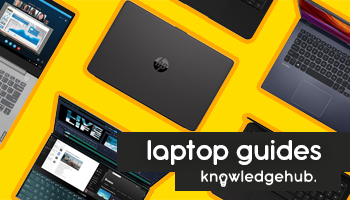This blog was updated in June 2022.
When it comes to portable, personal computers, which is best? It’s a question that often gets asked amongst those who like to talk about tech or, more importantly, those who are looking for their ‘perfect’ non-desktop PC device.
“What’s the difference between a classic laptop and a Chromebook? Should I pick a Chromebook or tablet?”
These questions might be valid, especially if you don’t have much tech knowledge. But really, it can be broken down a bit more: “What is a tablet more useful for than a laptop?” for instance. Or “In what way is a Chromebook superior to an ‘ordinary’ laptop?”
Each of the three devices can be perfect for certain situations or uses, and each of them is suitable for different users and their specific needs. It’s possible that a user may end up with one of each device for different functions, needs, and situations.
So, we’re going to look at each of these devices and explain a bit about them, and a bit about why they might be suitable for you – or why they might not be suitable for you!
What’s the difference between a laptop, Chromebook, and tablet?
To the untrained eye, a laptop and a Chromebook might look the same, and you might think that a simple Chromebook and tablet can achieve much of the same tasks. There are plenty of differences between the three – here’s a quick rundown.
What is a laptop?

Let’s start with the one everyone is most likely to know. A laptop is a small portable device which comprises a keyboard, a screen, and the inner workings of a computer to give you a computer on the move.
They’re quite literally portable computers, designed for convenience and ease of use. They can sometimes have the same computing capabilities as a desktop PC, which is pretty nifty when you consider the fact that you generally can’t move normal PCs easily from place to place.
In fact, the very best laptops can sometimes be more powerful than older desktop PCs!
Laptops have a thin LCD or LED screen on the inside of the lid, and a keyboard on the inside of the lower part. The ‘inner workings’ of the computer itself tend to be in the lower part of the laptop. The size of a laptop is pretty much dependent on the size of the screen.
You’ll find that there are various sizes available, but the average-sized laptop, and therefore the most common sized laptop, is 15.6”. This is perfectly adequate for efficient and ‘user-friendly’ computer tasks, and also if you wish to watch a film or play a game then it’s a comfortable size.
Laptops are a jack-of-all-trades, with plenty of peripheral slots you can make use of and the power to carry out most computing tasks.
What is a Chromebook?
So, you might be wondering, why is a Chromebook not a laptop? After all, they look pretty much the same. Well, yes, in a manner of speaking, a Chromebooks is a laptop. But there’s an important difference between a laptop and Chromebook.
When it comes to a laptop vs a Chromebook, Chromebooks are specifically controlled by Google’s Chrome operating system, which runs using the Chrome browser. So a Chromebook works through the use of internet-based applications (and cloud storage) rather than with everything running ‘live’ on your device and desktop.
A Chromebook will save files to the cloud rather than to a hard drive and will stream things rather than download them, arguably making your life easier, provided you have an internet connection.
On top of this, a key difference between a laptop and a Chromebook is that the chances of you getting a virus on your Chromebook are substantially reduced compared to a standard laptop.
Chromebooks also have some major ‘operating advantages’ over laptops. They generally boot up much faster due to their use of solid-state drives and the Chrome operating system.
In comparison to a standard laptop, a Chromebook is a really fast device, not just when booting up but also in general use. It has very little storage on the device itself, thanks to the cloud, which helps with keeping the internal workings of the device dedicated to the task at hand.
Finally, as Chromebooks have less built-in hardware, this means that the Chromebook’s size can be kept to a minimum. They tend to be incredibly tactile devices due to their compact nature.
Generally speaking, a Chromebook will be a cheaper option for you to buy than a laptop, though there is obviously a wide range of price options for both devices. There are different models you can consider before you find your perfect choice of Chromebook.
What is a tablet?

The debate has raged for a long time as to whether a tablet is a large mobile phone or a small laptop. A tablet really is its own device – though it does have something in common with both of them.
When asking what’s the difference between a laptop and a tablet, there are quite a few things to consider. Tablets have the portability of smartphones because they’re small and compact enough to easily carry around with you.
A tablet also has a touchscreen, making them easy and convenient to handle and use. There’s no need for peripherals like a keyboard and a mouse, as every function can be done with a tap or a swipe of a finger on the screen.
Tablets, like the best smartphones, can also alter the orientation of the screen, so they can be used in a landscape or portrait mode, which means they are highly user-friendly and can be used for different screen needs.
The best screen size for a tablet depends on your own individual taste. Some tablets have quite large screens, and some of the ‘mini’ tablets have screens of much smaller sizes. We think the best is around 10” as that is comfortable enough at all levels.
Tablets are also brilliant as internet devices, and virtually all of them available on the market today are internet Wi-Fi capable. More or less everyone has some form of smartphone these days, and the internet experience on a tablet is roughly similar – but a tablet can enhance usability.
If you decide not to go for a tablet which has its own 4G capability (and you should check before you buy, if you require this feature) then you can still connect to the internet when you are out and about because there are Wi-Fi hotspots everywhere in the country, which you can connect to with great ease.
Laptop vs Chromebook vs tablet: which is better?
As you’ve no doubt noticed, all of these devices are better suited to certain tasks than others.
Laptops are your all-in-one portable powerhouses, able to do what a normal or gaming PC can do while on the move. They should be your go-to device if you something with any degree of computing power.
When it comes to a Chromebook vs tablet, the needs become a little similar. Both Chromebooks and tablets are great for streaming things, but you might want to opt for the Chromebook if you plan on doing basic computer admin tasks.
Alternatively, a tablet might be the right choice if you simply want a bigger mobile phone experience than you already have.
So, to round up the question: “What’s the difference between a Chromebook and a laptop, and indeed, a tablet,” the answer is simple. They’re designed for different tasks, with different tech, and different capabilities.
And quite frankly, that’s a good thing. While having a device that does it all can be handy, you might very well prefer to have one device that does what you need perfectly.
Obviously, it’s your call on which option you decide to go with, and we hope that this article has given you a few more pointers which will help you make up your mind. Just remember before you buy that you should consider what you will primarily be using your new device for and choose from that basis.
Whether you pick a laptop, tablet, or Chromebook, you can find them all right here in the Ebuyer store. Start browsing today for your ideal device, and head over to the Ebuyer blog for more articles like this one.



